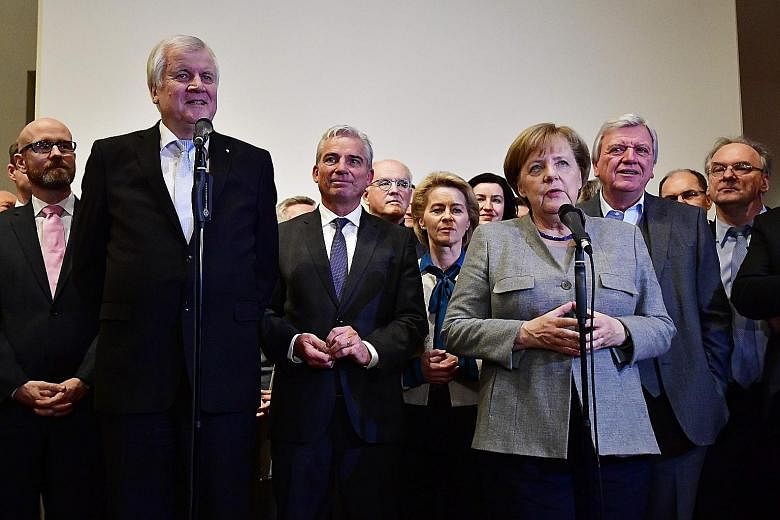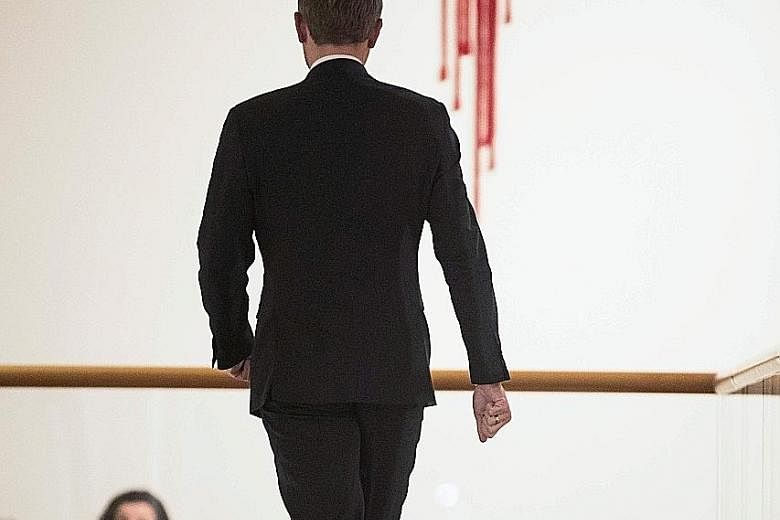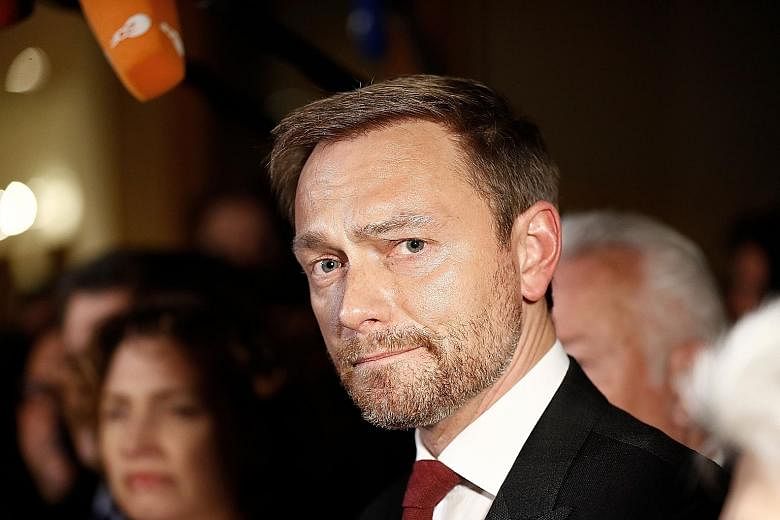BERLIN • High-stakes talks to form a new German government have collapsed after the pro-business Free Democratic Party (FDP) walked out, plunging Europe's biggest economy into a political crisis and potentially precipitating the end of Chancellor Angela Merkel's career.
After more than a month of gruelling negotiations, Mr Christian Lindner, the leader of the FDP, said on Sunday there was no "basis of trust" to forge a government with Dr Merkel's conservative CDU-CSU alliance and the ecologist Greens.
The protracted negotiating process "has shown that the four partners have no common vision for our country and no common basis of trust", Mr Lindner said. "It is better not to rule than to rule the wrong way. Goodbye!"
Voicing regret at the FDP's decision, Dr Merkel vowed to steer Germany through the crisis. "As Chancellor... I will do everything to ensure this country comes out well through this difficult time," she said.
She said that she saw no reason to resign after the collapse of talks, adding that her conservative bloc would enter any new elections more unified than before. Dr Merkel told German broadcaster ZDF she was ready to serve four more years as chancellor, and felt it was important to send a signal of stability for the country and Europe and the world.
She also said she would prefer new elections to leading a minority government. "My point of view is that new elections would be the better path," Dr Merkel told ARD television. She also stressed that she would not make herself dependent on support from the far-right.
Asked about the possibility of another "grand coalition" with the Social Democrats, Dr Merkel said she would wait to see the party's response after talks with President Frank-Walter Steinmeier tomorrow. But she said any demand for her to step down would not be a good way to start a new coalition.
She held her own consultations with Mr Steinmeier yesterday on what comes next. Mr Steinmeier said in a statement that he expects all parties elected to Parliament to be ready for talks to enable a government to be formed.
"All political parties elected to the German Parliament have an obligation to the common interest to serve our country," he said. "I expect from all a readiness to talk to make agreeing a government possible in the near future," he added.
News magazine Der Spiegel called the breakdown in negotiations a "catastrophe" for Dr Merkel, and said Germany, long seen as an island of stability in a turbulent West, was having its "Brexit moment, its Trump moment".
Despite the bad news, the Stoxx Europe 600 Index advanced and Germany's DAX rebounded from a seven-week low. The euro fell in the morning, but later recovered.
The talks, which turned increasingly acrimonious, had stumbled on issues including the divisive matter of immigration. The parties also differed on environmental issues, with the ecologists wanting to phase out dirty coal and combustion-engine cars, while the conservatives and FDP emphasised the need to protect industry and jobs.
If new elections are held, Dr Merkel, in power since 2005, would face questions from within her party on whether she is still the best candidate to lead them.
Top-selling Bild daily said earlier on Sunday that a failure to forge a coalition puts "her chancellorship in danger". A poll by Welt online also found that 61.4 per cent of people surveyed said a collapse of talks would mean an end to Dr Merkel as Chancellor. Only 31.5 per cent thought otherwise.
AGENCE FRANCE-PRESSE, REUTERS, BLOOMBERG, NYTIMES



